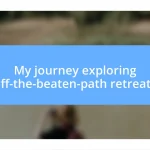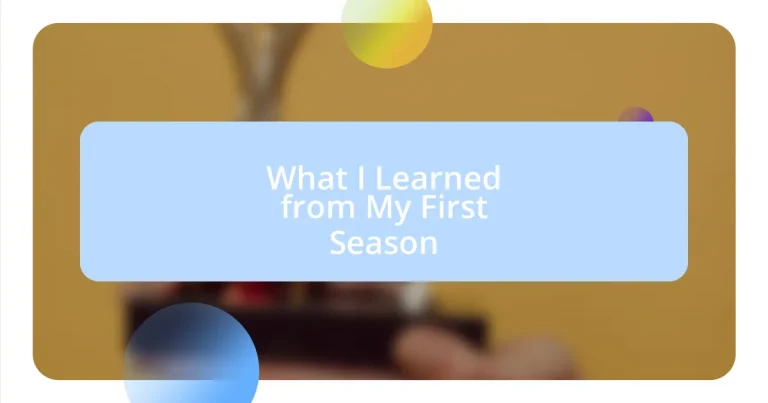Key takeaways:
- The author was motivated to start by witnessing others excel, support from a mentor, and the thrill of stepping out of their comfort zone.
- Key challenges included overcoming a steep learning curve, managing time effectively, and developing emotional resilience during competitions.
- Essential skills developed were adaptability, communication, and resilience, which enhanced teamwork and personal growth.
- Failures served as profound teachers, fostering collaboration and encouraging a mindset shift to embrace challenges as growth opportunities.
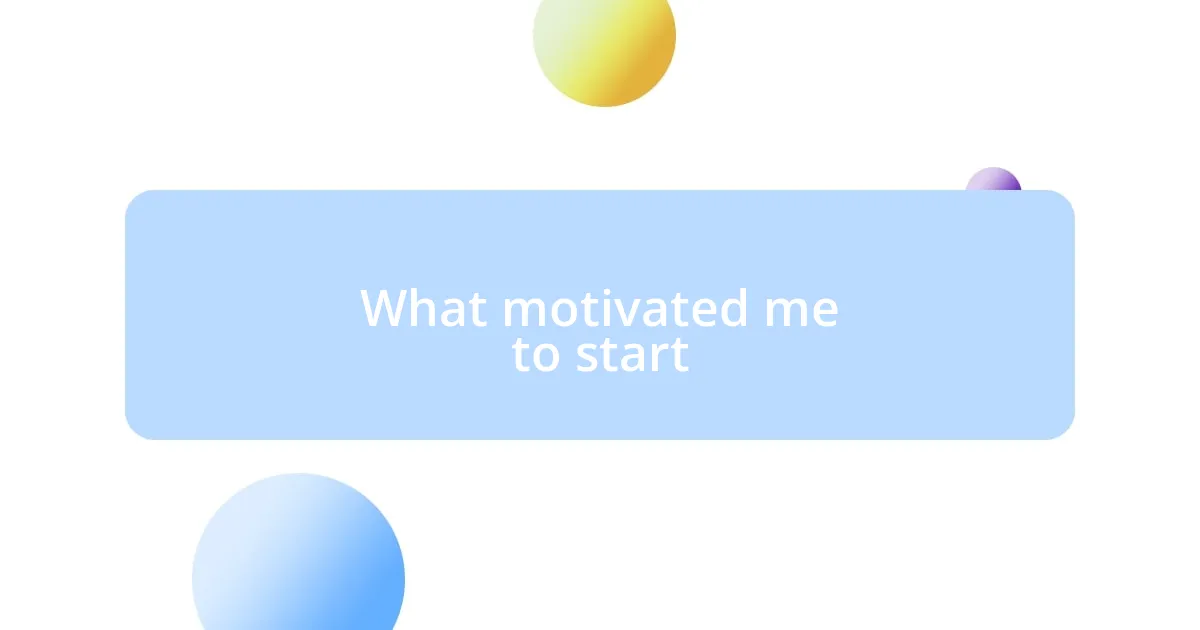
What motivated me to start
What truly sparked my motivation to start was the sheer joy I felt watching others excel in the activity. I remember sitting in the stands, feeling an electric excitement as my friends competed. Have you ever felt that itch to jump in and join? That’s how I felt—I wanted to create my own stories and experiences.
I also found inspiration from my mentor, who was incredibly encouraging. Their belief in my potential made all the difference. Honestly, how often do we come across someone who sees something in us that we don’t yet see in ourselves? Their unwavering support reignited a flicker of confidence in me, propelling me to take the leap.
Lastly, I can’t overlook the challenge that pulled me in. The idea of stepping out of my comfort zone was both intimidating and exhilarating. I often ask myself, what’s life without a little risk? The thought of pushing my limits excited me. It was the uncertainty that made me genuinely curious about what I could achieve.
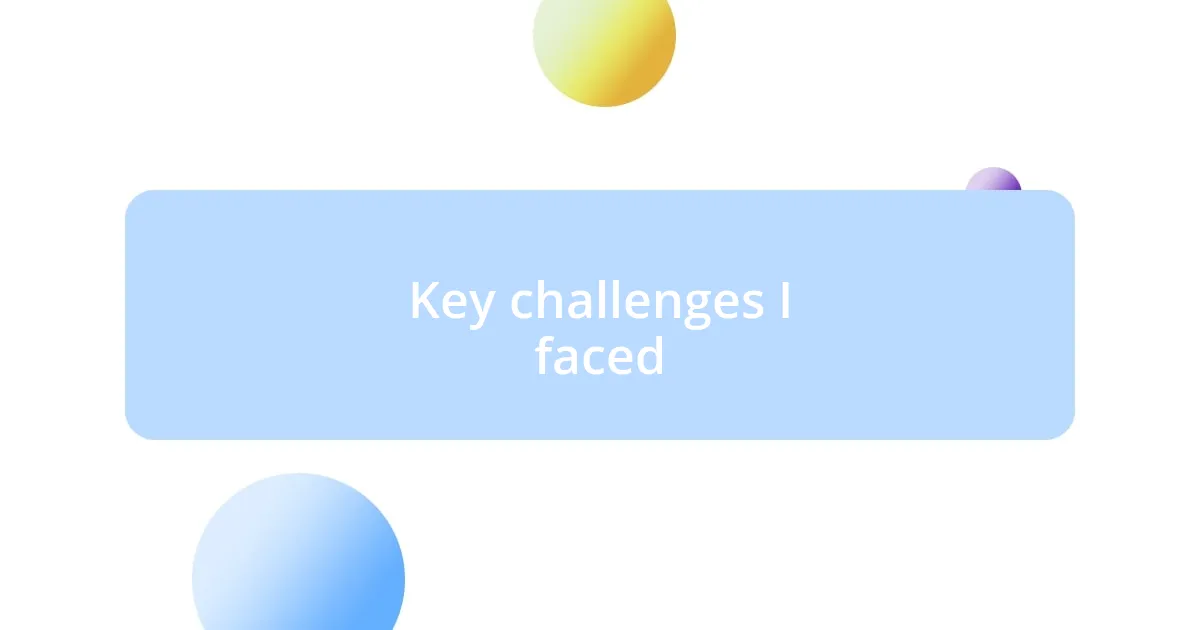
Key challenges I faced
Facing challenges during my first season was inevitable. One of the toughest hurdles was acclimating to the steep learning curve. I remember feeling overwhelmed the first few weeks—my mind was racing with new techniques and strategies. There were moments when I doubted my abilities. I asked myself, “Am I really cut out for this?” But every small victory, like nailing a difficult move, felt like a mini triumph that kept me going.
Another significant challenge was managing my time effectively. Balancing training sessions, personal commitments, and my social life often left me feeling stretched thin. There were days when I felt guilty for missing out on gatherings because I was busy practicing or preparing for competitions. Yet, looking back now, I realize those sacrifices were essential for my growth. It taught me the value of prioritization and commitment, transforming fleeting frustrations into long-term rewards.
Lastly, I faced the emotional ups and downs of competition. One moment I could bask in the joy of improvement, and the next, I could be downcast after a disappointing performance. The rollercoaster of emotions was exhausting. It forced me to develop resilience. I learned to celebrate progress, no matter how small, and focus on the journey rather than just the results.
| Challenge | Description |
|---|---|
| Learning Curve | Overwhelming new techniques and strategies led to doubts about my abilities. |
| Time Management | Balancing personal life and training often left me feeling guilty and stretched thin. |
| Emotional Resilience | Experiencing highs and lows taught me to celebrate small wins and focus on personal growth. |
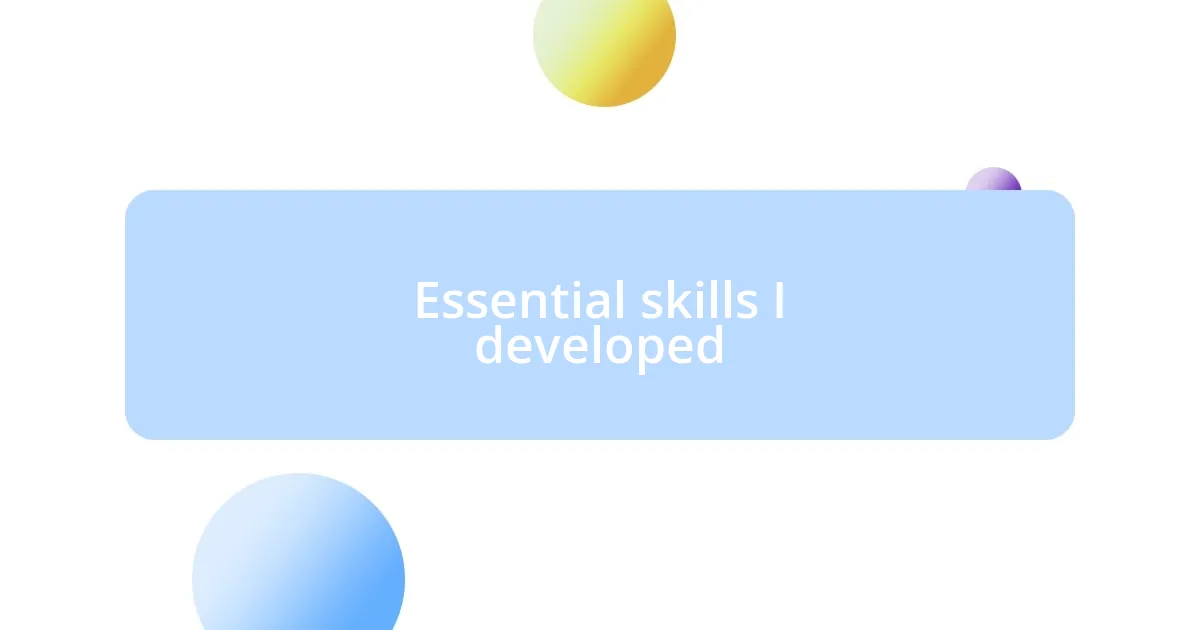
Essential skills I developed
One of the essential skills I developed this season was adaptability. In my early weeks, I realized that sticking rigidly to a plan didn’t always yield the best results. I vividly remember a day when the weather turned unexpectedly, forcing us to change our training routine last minute. Instead of panicking, I embraced the challenge, and we ended up finding creative solutions that enhanced our teamwork. It was a real eye-opener; sometimes, the best experiences come from being flexible.
Another critical skill was communication. Initially, I underestimated its power. During a crucial team practice, I noticed tension building among us. Rather than ignoring it, I suggested we take a moment to air our thoughts. That simple act led to a supportive discussion that not only improved our performance but also strengthened our bond. These moments illuminated the importance of open dialogue and trust, which are vital whether I’m working with a team or reflecting on my personal growth.
Here are the key skills I gained:
- Adaptability: Learning to adjust plans on the fly made me more resourceful and open to new experiences.
- Communication: Encouraging transparency in the team created a supportive environment, enhancing our collaboration.
- Resilience: Facing obstacles taught me to bounce back stronger and maintain focus on my goals.
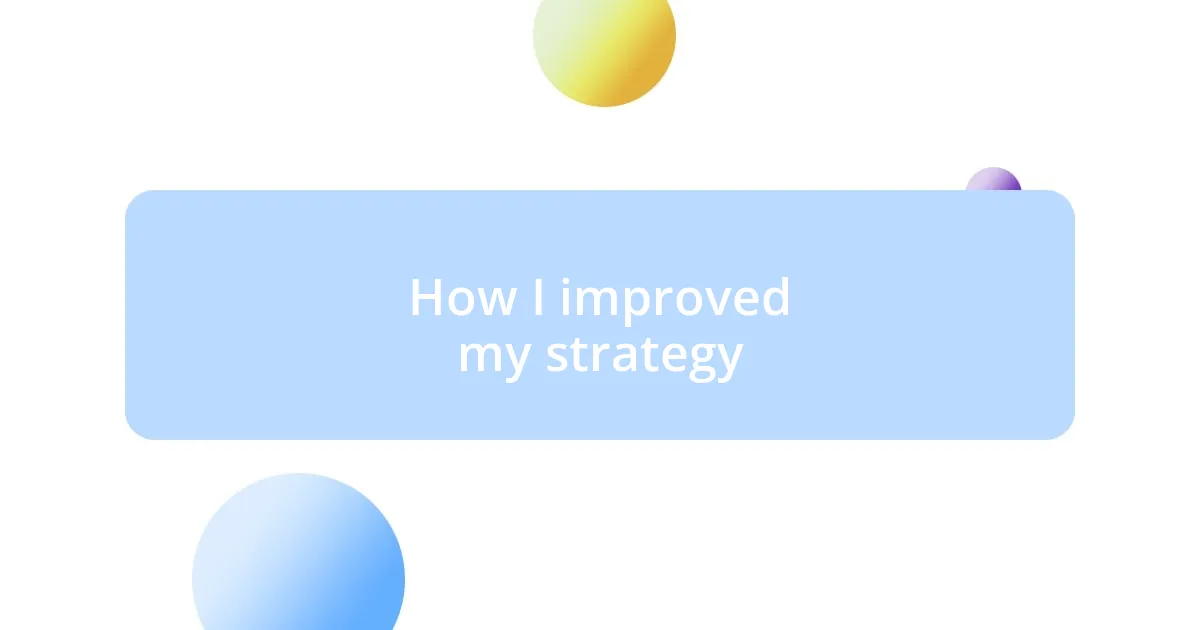
How I improved my strategy
Improving my strategy started with some self-reflection. I vividly recall one evening after a particularly tough training session; I sat down and reviewed my performance. It struck me how I often fell into the habit of repeating mistakes, which made me wonder: Why am I not learning from these experiences? I made a conscious decision right then to keep a journal, jotting down what worked and what didn’t for each session. This simple strategy gave me a clearer perspective and helped me pinpoint areas for improvement.
As I continued my journey, I began to embrace trial and error. I remember experimenting with different techniques during practice instead of relying solely on what I was comfortable with. One day, I tried a new approach that felt clumsy at first, but I pushed through that discomfort. That moment taught me that growth often lies beyond our comfort zones. Whenever I felt discouraged by a setback, I reminded myself that every stumble was a step towards refining my strategy.
Collaboration also became a cornerstone of my improvement. During one practice, I reached out to a more experienced teammate for guidance. In asking for help, I realized how beneficial it was to draw on the expertise of others. Their insights not only bolstered my understanding but also reinforced the idea that we’re all in this together. I often ask myself, “What can I learn from those around me?” The answer, I found, can lead to richer strategies and a more supportive environment.
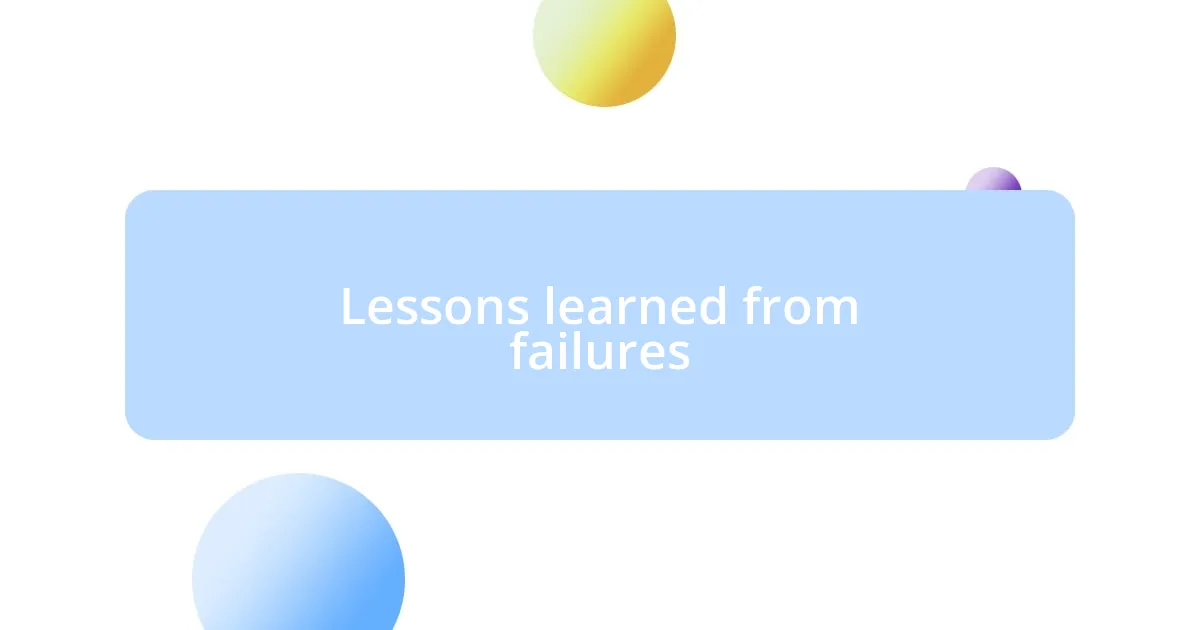
Lessons learned from failures
Failures have been some of my most profound teachers, guiding me toward unexpected growth. One particular instance stands out: during a crucial match, I completely misjudged my timing and missed a vital opportunity to score. At the time, I felt devastated, but in the aftermath, I questioned myself—what could I learn from that moment? Reflecting on my mistake helped me understand the importance of not just physical training but also mental preparation. It was a valuable lesson: every failure carries a hidden insight, waiting for us to discover it.
When I faced setbacks, it was easy to spiral into self-doubt. I remember my first practice where everything seemed to go wrong; my passes were off, and my confidence took a hit. As frustration mounted, I found myself whispering, “Is this really for me?” But instead of giving up, I leaned into that feeling. I realized that feeling uncomfortable is part of the journey. Allowing myself to sit with those emotions eventually turned my perspective around. I came to embrace failure as a critical component of my development, turning each misstep into a stepping stone.
Moreover, I’ve learned that failure often paves the way to collaboration and connection. After a particularly rough team outing where our strategy fell apart, I initiated a candid conversation with my teammates. That openness fostered an environment where we could share vulnerabilities without judgment. It struck me then: failing together actually strengthened our team dynamic. Have you ever noticed how shared struggles create deeper bonds? Together, we learned to support one another, transforming our failures into shared fuel for our journey ahead.
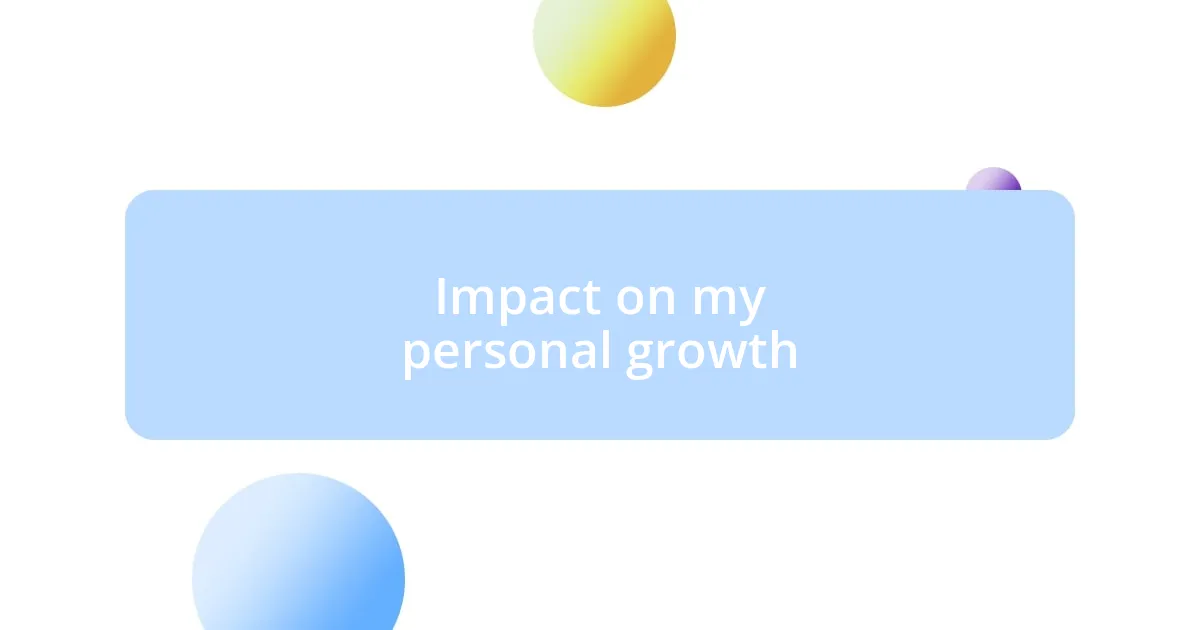
Impact on my personal growth
The journey of my first season sparked a remarkable shift in my personal growth. I remember feeling completely overwhelmed with new responsibilities and expectations. It’s funny how stepping into a new role can either break you down or build you up. For me, it was a mix of both. Adapting to change required a level of self-awareness I hadn’t tapped into before. I began to notice how my reactions, to both successes and failures, were shaping my character. Each time I faced a challenge, I would ask myself, “How can this experience make me a better version of myself?”
Another profound impact was the realization of resilience. After one particularly challenging game, I found myself sitting alone in my car, replaying every moment in my head. There was an overwhelming urge to critique myself harshly. However, instead of letting that negativity spiral, I shifted my focus. I thought, “What if this moment fuels my drive to improve?” That perspective shift was monumental. It allowed me to harness disappointment as motivation rather than as a weight holding me down. I learned to embrace the hard days because they were, in fact, building my mental fortitude.
Perhaps the most eye-opening aspect was the importance of vulnerability. I’ll never forget a moment when I shared my fears about performance with my teammates. I expected judgment, but instead, I was met with understanding and empathy. It dawned on me that everyone has their struggles. It made me ask, “Why do we often think we must face challenges alone?” That simple conversation sparked a culture of openness within our team. I realized personal growth is not just an individual journey; it thrives in a supportive community where we can express our vulnerabilities and learn together.
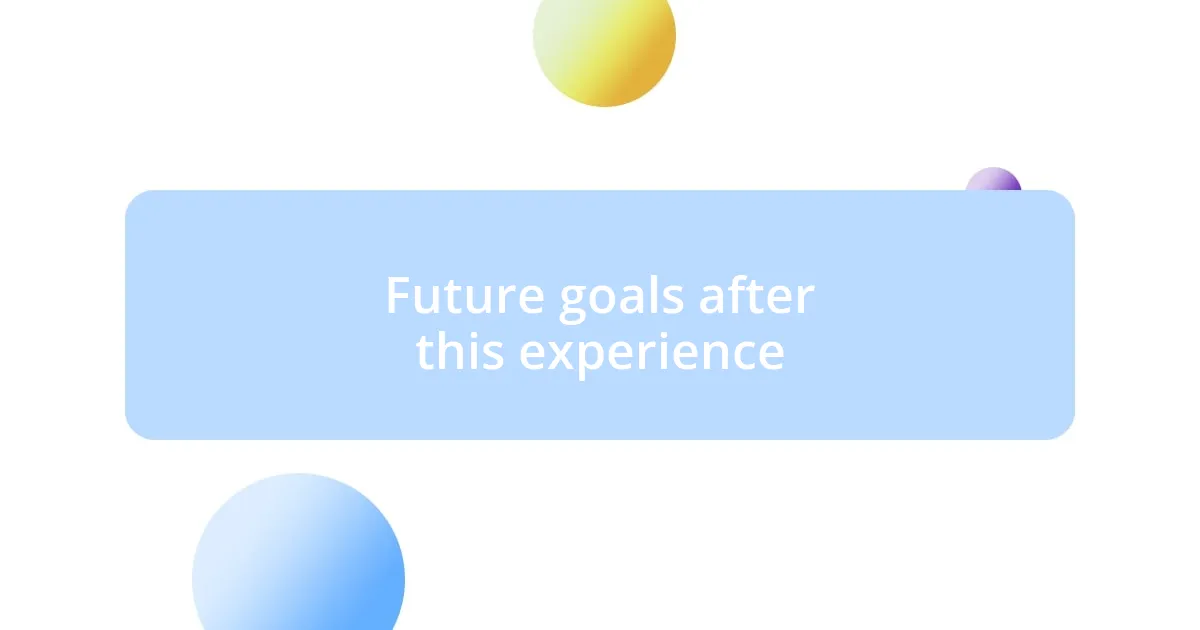
Future goals after this experience
Setting future goals after my first season has become a crucial way to channel the lessons I’ve learned. I remember the exhilaration of a hard-fought game, and how, despite the outcome, it inspired me to aim for improvement. One goal I’ve set is to refine my technical skills. Each practice will be an opportunity to focus on specific areas, whether it’s my footwork or my passing accuracy. I’ve realized that consistent practice is the key to turning weaknesses into strengths.
Moreover, I feel a strong desire to cultivate my leadership abilities. Reflecting on moments when I could have stepped up to guide my team, I find myself asking, “How can I inspire those around me?” I plan to take on a mentorship role, sharing what I’ve learned and supporting my teammates through their own challenges. This not only enriches my experience but also strengthens our team as a whole. Growth doesn’t happen in isolation; it thrives on collective effort.
Lastly, I recognize the importance of maintaining a positive mindset. After experiencing the emotional rollercoaster of this season, I’ve set a goal to practice resilience daily. I’ll keep a journal to track both my victories and setbacks, reflecting on moments of growth. This way, when hurdles arise, I can look back and remind myself, “I’ve faced challenges before; I can do it again.” This habit shift is my way of cultivating mental fortitude for the seasons ahead.






